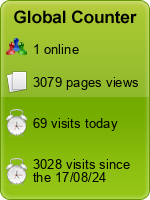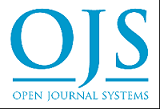The relationship of diabetes knowledge and self-care practices among patients with type 2 diabetes mellitus
DOI:
https://doi.org/10.33024/minh.v7i8.672Keywords:
Diabetes Mellitus (DM) Type 2, Knowledge, Self-careAbstract
Background: Diabetes Mellitus (DM) is a disease characterized by increased blood glucose levels and cannot be cured so it requires self-care. DM self-care is a program that must be carried out throughout the life of DM sufferers. DM self-care aims to optimize metabolic control, optimize quality of life, and prevent acute and chronic complications. Good knowledge and self-care consisting of good diet, physical exercise, medication, and education can control blood sugar levels and prevent complications of type 2 DM.
Purpose: To determine the relationship between knowledge and self-care in patients with type 2 diabetes mellitus.
Method: Descriptive correlational research design with a cross-sectional approach. The study population was patients with type 2 diabetes mellitus in the work area of the Pasar Rebo District Health Center, East Jakarta, totaling 690 patients, carried out in November-December 2023. The sampling technique used the Accidental Sampling technique with the Slovin formula and a sample of 87 respondents was obtained. The research instrument used the Diabetes Knowledge Questionnaire (DKQ-24) for the knowledge questionnaire and the Summary of Diabetes Self Care Activity (SDSCA) for the self-care questionnaire. Data analysis used the univariate and bivariate Chi Square alternative tests.
Results: Respondents with poor knowledge resulted in poor self-care of 30 respondents (53.6%), while respondents with good knowledge resulted in good self-care of 16 respondents (51.6%). The results of the Chi-Square test showed a significant p value of 0.001 (<0.05).
Conclusion: There is a significant relationship between knowledge and self-care in type 2 DM patients with a p value of 0.001.
References
Amorim, M. M. A., de Souza, A. H., & Coelho, A. K. (2019). Competences for self-care and self-control in diabetes mellitus type 2 in primary health care. World journal of diabetes, 10(8), 454.
Astuti, Y. (2022). Pengaruh Air Jahe Terhadap Penurunan Gula Darah. Jurnal Medika Hutama, 3(02 Januari), 2053-2057.
Babazadeh, T., Dianatinasab, M., Daemi, A., Nikbakht, H. A., Moradi, F., & Ghaffari-Fam, S. (2017). Association of self-care behaviors and quality of life among patients with type 2 diabetes mellitus: Chaldoran County, Iran. Diabetes & metabolism journal, 41(6), 449-456.
Bukhsh, A., Khan, T. M., Sarfraz Nawaz, M., Sajjad Ahmed, H., Chan, K. G., & Goh, B. H. (2019). Association of diabetes knowledge with glycemic control and self-care practices among Pakistani people with type 2 diabetes mellitus. Diabetes, metabolic syndrome and obesity: targets and therapy, 1409-1417.
Chew, B. H., Shariff-Ghazali, S., & Fernandez, A. (2014). Psychological aspects of diabetes care: Effecting behavioral change in patients. World journal of diabetes, 5(6), 796.
Cita, E. E. (2019). Self Care dan Kadar Gula Darah pada Pasien Diabetes Melitus Tipe 2. Jurnal Kesehatan Madani Medika (JKMM), 10(2), 85-91.
Degefa, G., Wubshet, K., Tesfaye, S., & Hirigo, A. T. (2020). Predictors of adherence toward specific domains of diabetic self-care among type-2 diabetes patients. Clinical Medicine Insights: Endocrinology and Diabetes, 13, 1179551420981909.
Gharaibeh, B., & Tawalbeh, L. I. (2018). Diabetes self-care management practices among insulin-taking patients. Journal of Research in Nursing, 23(7), 553-565.
Kong, S. Y., & Cho, M. K. (2020). Factors related to self-care in patients with type 2 diabetes. The Open Nursing Journal, 14(1).
Kugbey, N., Oppong Asante, K., & Adulai, K. (2017). Illness perception, diabetes knowledge and self-care practices among type-2 diabetes patients: a cross-sectional study. BMC research notes, 10, 1-7.
Kurnia, E., & Fitri, D. E. (2023). Penerapan Kombinasi Senam Kaki dan Rendam Air Hangat terhadap Kadar Glukosa Darah Pasien Diabetes Mellitus. Jurnal Pustaka Keperawatan (Pusat Akses kajian Keperawatan), 2(1), 27-32.
Mancusi, C., Izzo, R., di Gioia, G., Losi, M. A., Barbato, E., & Morisco, C. (2020). Insulin resistance the hinge between hypertension and type 2 diabetes. High blood pressure & cardiovascular prevention, 27, 515-526.
Mohebi, S., Parham, M., Sharifirad, G., Gharlipour, Z., Mohammadbeigi, A., & Rajati, F. (2018). Relationship between perceived social support and self-care behavior in type 2 diabetics: A cross-sectional study. Journal of education and health promotion, 7(1), 48.
Nakidde, G., Kamoga, R., Katushabe, E., Luwaga, R., & Mwanja, M. M. (2022). Knowledge and Practices of Self-Care among People with Diabetes in South Western Uganda: A Cross-Sectional Study at a Regional Referral Hospital in Mbarara City.: Diabetes self-care knowledge and practice in Mbarara city. Student's Journal of Health Research Africa, 3(3), 14-14.
Ningrum, T. P., & Siliapantur, H. O. (2019). Faktor-faktor yang memengaruhi manajemen diri pasien dm tipe 2. Jurnal Keperawatan BSI, 7(2), 114-126.
Notoatmojo, S. (2010). Metogologi penelitian Kesehatan. Jakarta: Rineka Cipta.
Nurasyifa, S. R., Fera, V. V., & Pratiwi, H. (2021). Hubungan Tingkat Pengetahuan Terhadap Manajemen Diri Pasien Prolanis Diabetes Mellitus Tipe 2. Acta Pharm Indo, 9(2), 78-94.
Patil, R., & Gothankar, J. (2019). Risk factors for type 2 diabetes mellitus: An urban perspective. Indian Journal of Medical Sciences, 71(1), 16-21.
Petroni, M. L., Brodosi, L., Marchignoli, F., Sasdelli, A. S., Caraceni, P., Marchesini, G., & Ravaioli, F. (2021). Nutrition in patients with type 2 diabetes: present knowledge and remaining challenges. Nutrients, 13(8), 2748.
Pourhabibi, N., Mohebbi, B., Sadeghi, R., Shakibazadeh, E., Sanjari, M., Tol, A., & Yaseri, M. (2022). Determinants of poor treatment adherence among patients with type 2 diabetes and limited health literacy: a scoping review. Journal of Diabetes Research, 2022(1), 2980250.
Raraswati, A., Heryaman, H., & Soetedjo, N. N. (2018). Peran program Prolanis dalam penurunan kadar gula darah puasa pada pasien Diabetes Melitus tipe 2 di Puskesmas Kecamatan Jatinangor. Jurnal Sistem Kesehatan, 4(2), 65-70.
Resti, H. Y., & Cahyati, W. H. (2022). Kejadian Diabetes Melitus Pada Usia Produktif Di Puskesmas Kecamatan Pasar Rebo, Kota Jakarta Timur. HIGEIA (Journal of Public Health Research and Development), 6(3), 350-361.
Sarkar, B. K., Akter, R., Das, J., Das, A., Modak, P., Halder, S., & Kundu, S. K. (2019). Diabetes mellitus: A comprehensive review. Journal of Pharmacognosy and Phytochemistry, 8(6), 2362-2371.
Sidabutar, A. S. (2016). Gambaran Perawatan Diri pada Pasien Diabetes Melitus di RSUP H. Adam Malik Medan (Doctoral dissertation, Universitas Sumatera Utara).
Spurr, S., Bally, J., Bullin, C., Allan, D., & McNair, E. (2020). The prevalence of undiagnosed Prediabetes/type2 diabetes, prehypertension/ hypertension and obesity among ethnic groups of adolescents in Western Canada. BMC pediatrics, 20, 1-9.
Teede, H. J., Tay, C. T., & Joham, A. E. (2021). Polycystic ovary syndrome: an intrinsic risk factor for diabetes compounded by obesity. Fertility and Sterility, 115(6), 1449-1450.
Windani, C., Abdul, M., & Rosidin, U. (2019). Gambaran self-manajemen pada pasien diabetes melitus tipe II di Puskesmas Tarogong Kabupaten Garut. Jurnal Kesehatan Komunitas Indonesia, 15(1).
World Health Organization. (2009). Self-care in the Context of Primary Healthcare. Retrieved from: https://iris.who.int/handle/10665/206352
World Health Organization. (2021). The who global diabetes compact. Retrieved from: https://www.who.int/health-topics/diabetes#tab=tab_1
Downloads
Published
How to Cite
Issue
Section
License
Copyright (c) 2024 Malahayati International Journal of Nursing and Health Science

This work is licensed under a Creative Commons Attribution-ShareAlike 4.0 International License.









